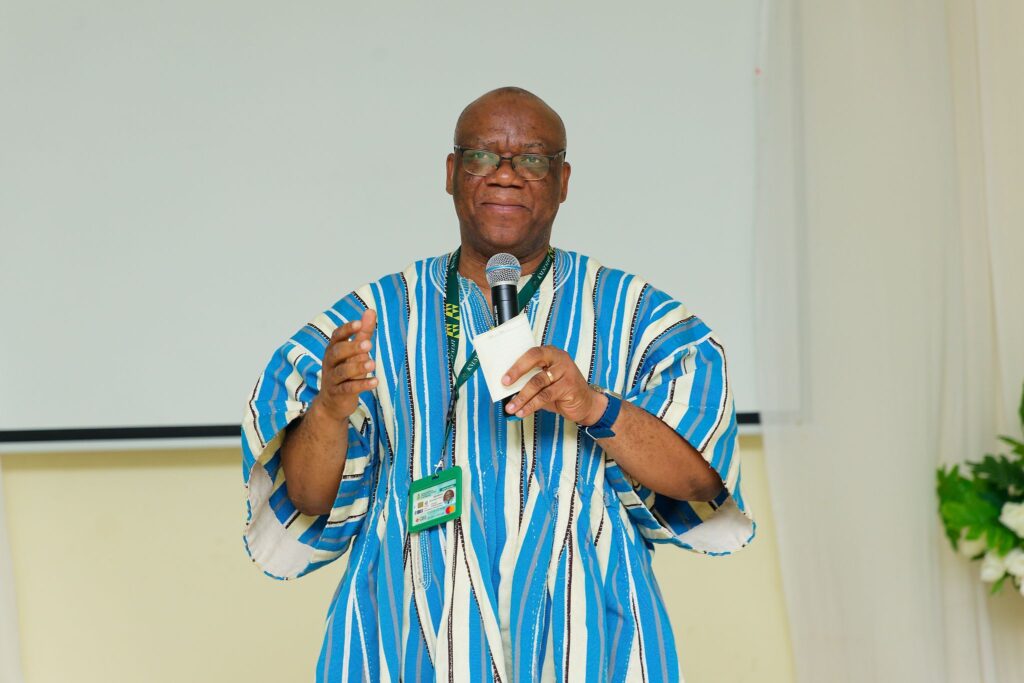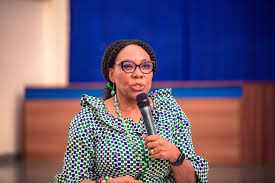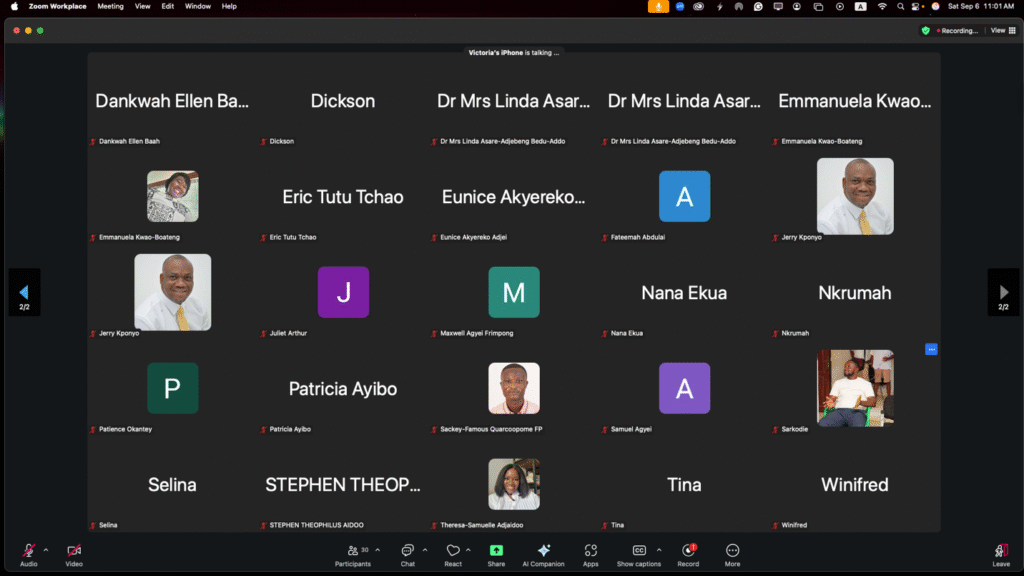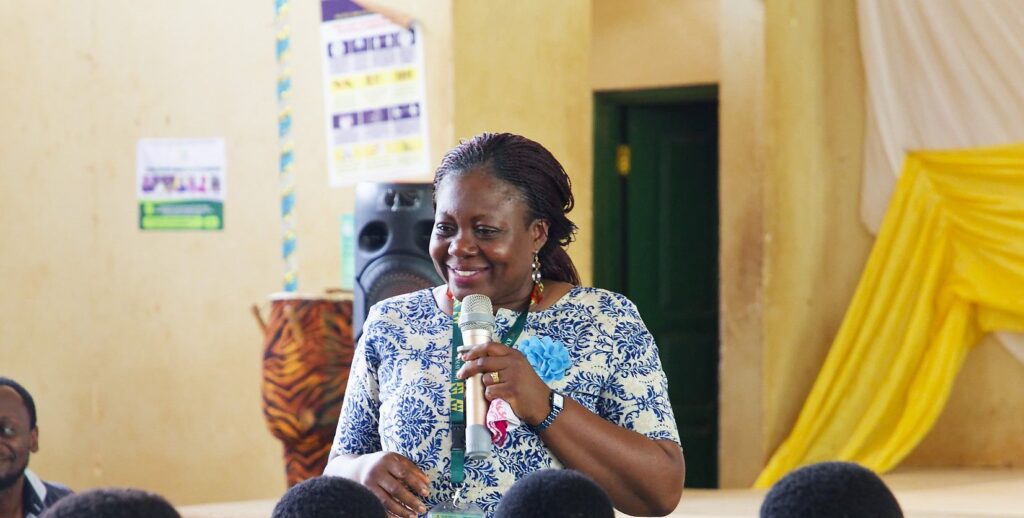The Responsible Artificial Intelligence Lab (RAIL) and Artificial Intelligence for Development (AI4SD) successfully concluded the first cohort of its mentorship and career guidance program on 6th September 2025. This program aims at networking to bridge the gap between academia and industry, augmenting the role of academic tutors in tertiary education, equipping participants with relevant employable skills for building their career in the advent of AI and to achieve the UN Sustainable Development Goals (SDGs). Ing. Dr. Mrs. Bennetta Koomson introduced the key dignitaries, Mentors, Ing. Dr. Mrs. Emmanuella Kwao Boateng, Ahanti Region Branch 1 WinE President, RAIL and AI4SD team, as well as the other participants.

In his welcome address, Prof. Jerry John Kponyo, PI of AI4SD and Scientific Director of RAIL, highlighted the two projects’ role in thriving on the achievements of AI in agriculture, energy, health, education, assistive and gender equity to support development. He stressed the importance of mentorship in empowering mentors and mentees, noting that lessons from Cohort One would strengthen Cohort Two.
“This initiative under ‘AI in Education’ directly responds to SDG 4: Quality Education,” Prof. Kponyo explained. “We must create a structured pipeline where experienced professionals can guide and support younger talents, thereby securing our future.
We believe mentorship is a reciprocal relationship; by watering others, we ourselves are watered.”
He extended congratulations to all mentors and mentees who completed the program.

Delivering the keynote address, Prof. Mrs. Ibok Nsa Oduro, President of Women in Science, Technology, Engineering, and Mathematics (WiSTEM) Ghana, praised the program as a celebration of resilience and the transformative power of mentorship. She emphasised the importance of 21st-century skills in adaptability, critical thinking, and innovation while urging mentees to become mentors one day.
“In every society, progress depends on how effectively one generation prepares the next. This has been a journey of self-discovery, resilience, and purpose for our mentees. As we live in the ‘AI Century,’ mentorship is not just surviving this era, it’s about thriving in it.”

Mrs. Victoria De-Graft Adjei, Deputy Registrar of the KNUST Counselling Centre, provided a detailed analysis of the mentorship landscape in higher education. She highlighted KNUST’s institutional commitment through its formal mentorship policy while outlining common challenges and solutions:
- Key Challenges: Undefined expectations, time constraints, personality mismatches, and issues related to diversity and inclusion.
- Recommended Solutions: Implementing pre-mentoring assessments, establishing formal mentorship agreements with clear goals, setting professional boundaries, and fostering effective communication.
- Benefits of Successful Mentorship: Improved academic performance, enhanced career development, strong interpersonal skills, and a bolstered institutional reputation.
“The ability of a mentee to open up freely and express opinions without repercussions promotes a healthy relationship and is key to success,” Mrs. De-Graft Adjei concluded.
Mrs. Selina Doe Angmor, Director of KNUST Career Services, presented a strategic framework for co-creating a robust career guidance program with stakeholders. She indicated that career guidance equips learners with the skill sets required to navigate a competitive job market and improve their chances of acquiring roles aligned with their qualifications in this AI-dominant era. She shared some statistics from prospective employers on personal skill development required for employability.
She identified key internal stakeholders (Career Services, Faculty/Departments, Alumni Association, Student Representative Council) and external partners (Employers, Professional Associations, Government Agencies). Mrs. Angmor shared light on a proposed career guidance program at KNUST which is built on five core pillars:
- Career Counselling & Mentorship: Expanding access to certified career coaches.
- Skills Development: Integrating both soft skills and essential digital/AI competencies.
- Industry Placement: Strengthening structured internship and job placement systems.
- Career Fairs & Networking: Facilitating direct student-industry engagement.
- Digital Career Hub: Developing an AI-powered platform for job opportunities and career resources.
Mrs. Angmor reported significant progress at KNUST, including virtual soft skills training for over 57,000 students and successful annual career fairs. She left the graduates with crucial advice: “As you are empowered with AI skills, always remember that integrity and the right attitude are non-negotiable for career progression. This is the consistent feedback we receive from employers.”
Dr. Martina Baidoo and Dr. Kingsford O. S. Kwakye, members of the AI in Education and Women in Technology, led the feedback and recommendation sections. Some participants shared inspiring testimonials. Fatimah Abdullahi Tiyumthaba credited her mentor, Dr. Felicia Anane-Frimpong for helping her to balance academic and extracurricular pressures.
At the same time, Patricia Nkrumah expressed gratitude to Prof. Eunice Akyereko Adjei for her guidance in technical skills gap assessment of her career, which led her to acquire extended training in AutoCAD and coding, improving her confidence as a graduating Mechanical Engineer for the job market.
Some Mentors shared their experiences on the program, their journey with their mentees and expressed their appreciation to the organisers. Among them were Ing. Mrs. Julia Jones Yayra Ametorwogo, Radio Network Optimisation Specialist at Telecel Ghana Limited and President, Women in Technology Telecel, as well as Ms. Winifred Kotini at Eagle Innovations-Technology Enabled Innovations, Strategy & Digital Transformation.
Nana Yaa Aduakye, the SRC Women’s Commissioner, outlined student leadership’s role in bridging gaps. She advocated for structured mentorship programs, career development activities, and safe, inclusive support systems to help female students navigate STEM and leadership spaces.

Reflecting on Cohort One, Prof. Eunice Akyereko Adjei stressed the need for intentional communication and stronger mentor-mentee pairing. She announced that Cohort Two will feature stricter selection processes, improved structures, and potential expansion to sister SHECodes universities, with applications set to open in October.
In his closing remarks, Prof. Kponyo commended all participants and resource people. He reinforced that technical excellence must be paired with strong character to succeed in the corporate world.
“The experiences from Cohort One will ensure Cohort Two is even more successful,” he stated. “This initiative is committed to building holistic graduates who possess not only technological expertise but also the leadership qualities to impact society positively.”
The RAIL team confirmed that certificates for Cohort One mentees will be distributed electronically and announced that planning for Cohort Two is underway.